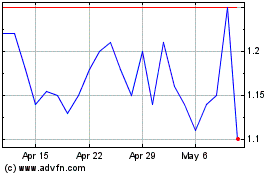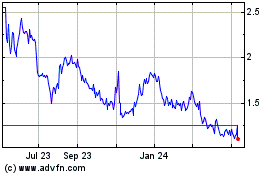Genzyme Efforts To End Cerezyme Shortage Proceeding
October 01 2010 - 11:53AM
Dow Jones News
Genzyme Corp. (GENZ) reports that its efforts to end the
shortage of top-selling rare-disease treatment Cerezyme are
proceeding as expected.
The Cambridge, Mass., biotechnology company said that U.S.
Cerezyme patients, who suffer from the genetic disorder Gaucher's
disease, are already on normal dosing schedules and all patients
around the world will be returning to normal by year-end with that
supply "moving forward into 2011."
The short supply arose because of the temporary shutdown of
Genzyme's Allston, Mass., plant due to a viral contamination in
June of last year. The facility is the sole source of Cerezyme and
Fabry disease drug Fabrazyme. The shortages have significantly hurt
Genzyme's business and allowed competitors to enter the U.S.
market.
Production has "remained consistent and reliable" at the plant,
Genzyme said. Because of limited inventory of the drug, there could
still be restrictions for dose increases or new patients, depending
on the region.
For Fabrazyme, Genzyme said last month that it expects to stop
rationing the drug during the first half of next year. The
efficiency of Fabrazyme production has been slower than expected
since restarting the Allston plant and it has taken longer for
supply to come back to speed.
Patients affected by both diseases lack specific enzymes--which
the drugs replace--that break down certain types of fats, causing
them to build up in the body and leading to major problems
including pain, skeletal complications, organ failure and
death.
For both drugs, normal dosing generally means getting the drug
twice a month. During the shortage, some patients were forced to
regularly skip multiple doses.
The Allston plant has been plagued by problems in recent years,
including numerous failed regulatory inspections, the temporary
shutdown, and resulting in prolonged regulatory oversight of its
operations.
In the meanwhile, Genzyme has been pressured by activist
investors to change multiple aspects of its business and is in the
process of selling certain non-core operations and streamlining its
work force.
It also recently rejected an $18.5 billion unsolicited takeover
offer from France's Sanofi-Aventis SA (SAN.FR SNY), which has
continued to express interest in buying Genzyme.
The drug supply problems have allowed the entrance of
competitors for Cerezyme and Fabrazyme. Shire PLC (SHPGY) makes
Gaucher's treatment Vpriv, which is approved in the U.S. and
Europe. It already sells Fabry disease drug Replagal in Europe and
plans to file for U.S. approval.
Protalix BioTherapeutics Inc. (PLX) is developing a Gaucher's
disease treatment with Pfizer Inc. (PFE) that is under Food and
Drug Administration review.
Because of the shortages, the FDA allowed all the drugs to be
used under a special protocol last year, despite not yet being
approved for marketing.
Cerezyme sales dropped 34% last year to $793 million due to the
shortage, while Fabrazyme sales dropped 13% to $494 million. The
company had total revenue of $4.5 billion.
Shares of Genzyme recently traded up 15 cents to $70.94.
-By Thomas Gryta, Dow Jones Newswires; 212-416-2169;
thomas.gryta@dowjones.com
Protalix BioTherapeutics (AMEX:PLX)
Historical Stock Chart
From Mar 2024 to Apr 2024

Protalix BioTherapeutics (AMEX:PLX)
Historical Stock Chart
From Apr 2023 to Apr 2024
